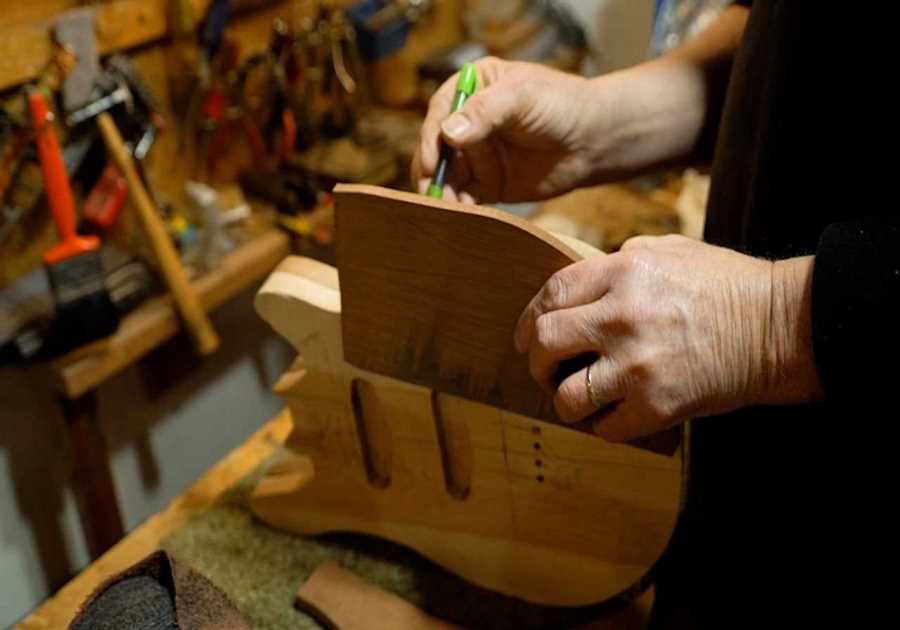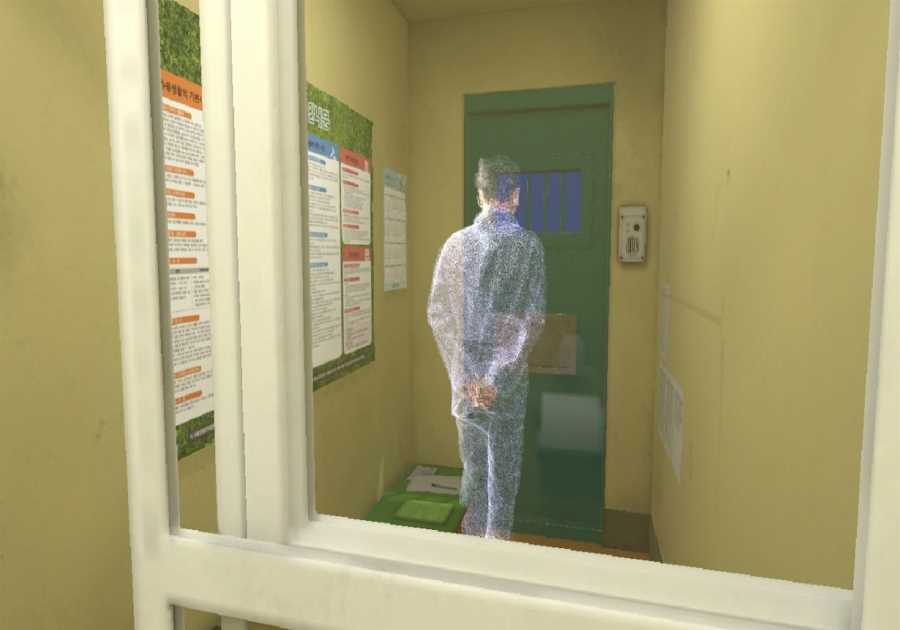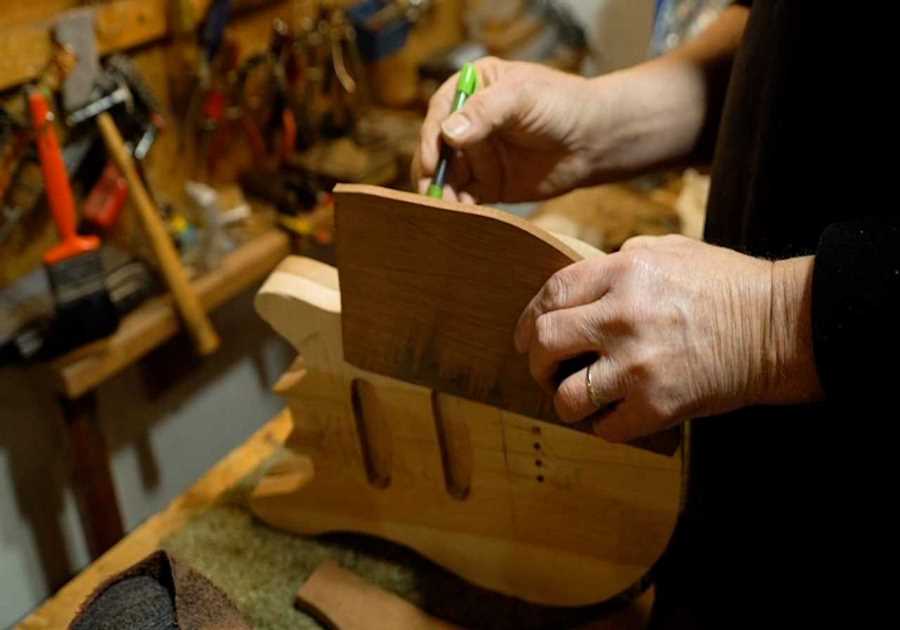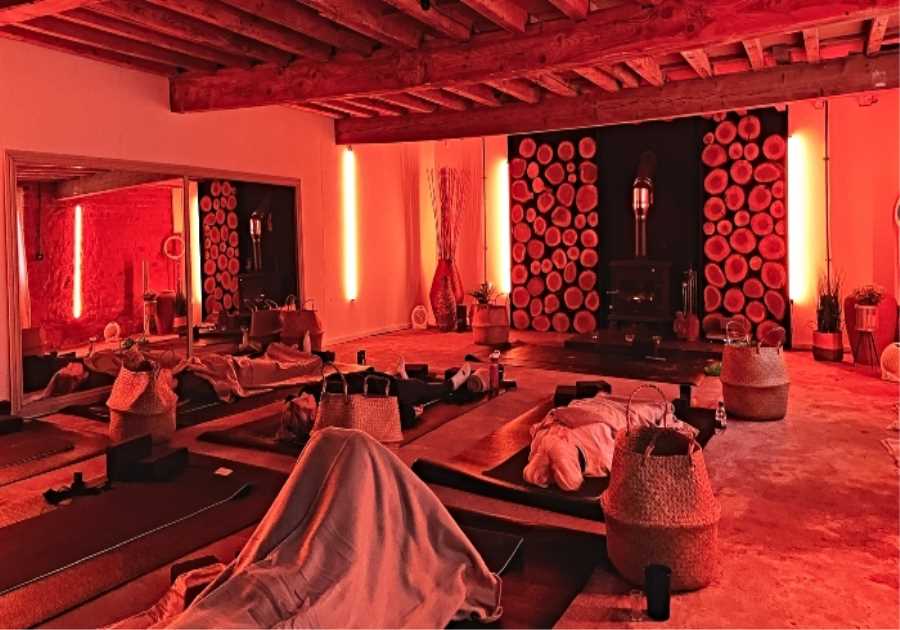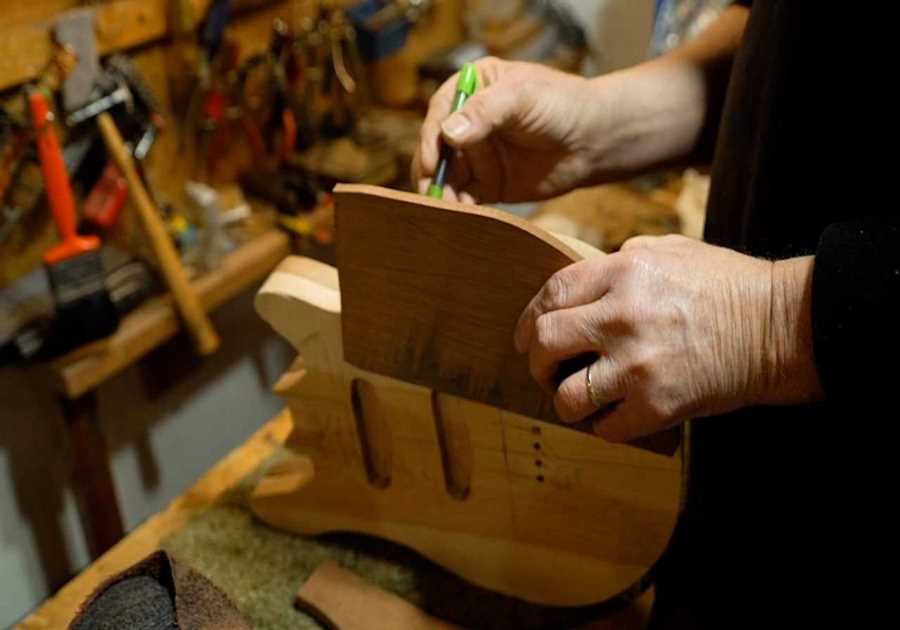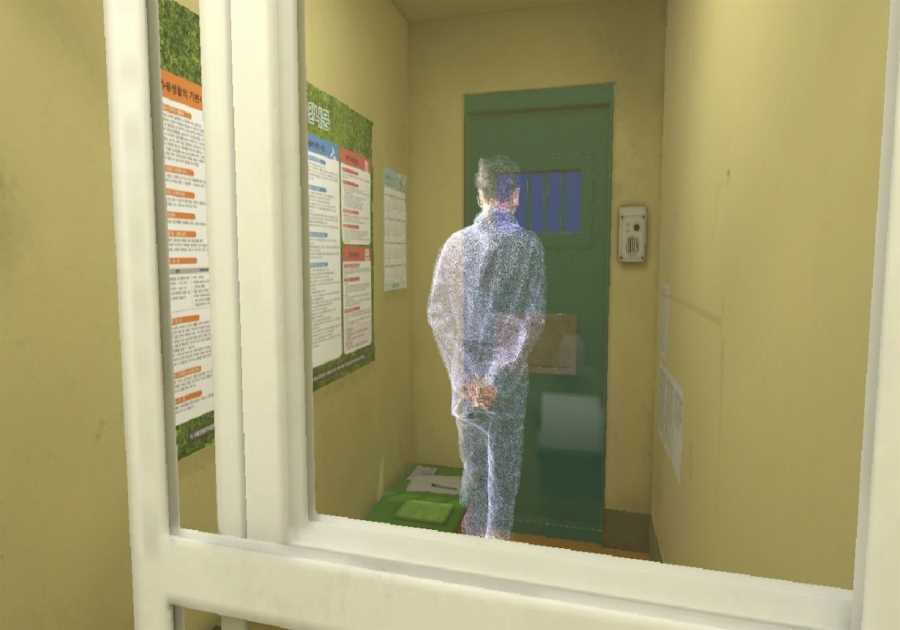It’s the holiday season in Moscow, where the city has put up symbols of Vladimir Putin’s invasion of Ukraine outside the entrance to Gorky Park: the Latin letters Z, V and O in throbbing neon, looming over slogans urging Russians to think of “victory” and their “valiant” soldiers as they head off to the park’s ice rink.
We’re almost a year into the war, and the Kremlin still has yet to explain what exactly the letters – first seen spray-painted on Russian tanks – are meant to signify. But set alongside the snow-capped firs and kitschy grottoes, their meaninglessness is their defining feature; they are just part of the fabric that lets Muscovites go about their lives as if nothing has happened.
Missiles rain down on Kyiv almost daily. Entire towns in eastern Ukraine have been razed to the ground. Villages in Russia’s far-flung backwaters have lost much of their male-of-age population to the military draft. But if there’s one city that Putin’s war doesn’t seem to have changed much, it’s Moscow. Instead of a wartime imperial stronghold, the city has become the capital of Putin’s “special operation”, the euphemism that suggests far-off commando deployments in Idlib or Bangui rather than the carnage that Russia is wreaking in the “brotherly nation” next door.
It’s an illusion strictly upheld by the Kremlin – questioning it can land you 15 years in prison for “discrediting the armed forces”. But that illusion couldn’t exist if Muscovites didn’t want to believe in it. “Nobody is doing any self-reflection. What’s the point? If you pause to stop and think about it, things just get worse,” one Kremlin-connected businessman grumbles to me.
I get my first taste of the new reality in “Tasty, full stop”, the replacement McDonald’s that took over the US burger giant’s operations after it pulled out of Russia last summer. The chain’s flagship restaurant on Pushkin Square heralded Moscow’s fledgling capitalist future when it opened in early 1990, luring Russians to spend hours lining up for a Big Mac. Now offerings like the “Big Special” and “Grand Deluxe” embody Russia’s sanctions hit autarchy. Someone has crossed out the McDonald’s logo on my sauce packet with a felt tip pen. “You used to make pretty labels,” a sanctioned oligarch explains. “Now you’ve taken that pretty face away, and the label is a little less pretty than before. But the inside is still there.”
Uneasily attempting to digest my meal, I look up and see Olga Skabeyeva – a shrill state television host who the EU said was “conscious of her cynical role in the Russian propaganda machine” when it sanctioned her – walk in with a bodyguard and buy a coffee. After my six months away, it’s a shock to see someone known only through hate-retweets in the West in their natural environment.
The next morning, I relate my amazement over a cappuccino from ersatz Starbucks – now co-owned by a rapper whose hits include My Best Friend Is President Putin – to the head of one of Russia’s largest sanctioned companies. He says he has no idea who Skabeyeva even is.
At first, I’m stunned: Skabeyeva’s TV talk show whips up nationalist fervour against Ukrainians, whitewashes Russian war crimes, and crows about the likelihood of nuclear war for several hours each day. She’s one of the most recognizable figures on Russian TV. But as I do my rounds of Kremlin-connected types, I hear that most of them don’t know who Skabeyeva is either. Some admit that this willing blindness is a coping mechanism, a way to shut out the horrors of war and ignore their own helplessness to change it. “People are doing deals and going to weddings in Kyiv. Why can’t they do that in Moscow too?” a former official says. “Why change our plans now? We have to live for today.”
Outwardly, Moscow still looks a lot like it did before the war. Oligarchs, showbiz stars and pro-Putin politicians still power-lunch at restaurants proudly bearing their Michelin guide rating. The boutiques behind the Bolshoi Theater still sell the latest in high-end Italian fashion and French cosmetics. In hip loft-style buildings, the state companies that dominate Russia’s economy are still serving real champagne at their Christmas parties.
But you don’t have to scratch hard at the facade to see the rot setting in. The oligarchs and crooners are all under US sanctions, and the Michelin guide has withdrawn all its Russian ratings. A good third of the shopfronts in Moscow’s malls are empty after big-name western brands pulled out. Kremlin-connected executives quietly raise a glass for peace in 2023 – then grumble that even they are powerless to speak out against the war, which they fear so much as mentioning in public.
Most of those who did mention the war fled in its early days, after the Kremlin shut down independent media and police arrested nearly 20,000 people, often violently, for protesting. Others plotted their exit more slowly as they applied for visas in Europe. Then, in September, Putin mobilized Russia’s reserves, causing more than a million people to flee the country in a matter of weeks.
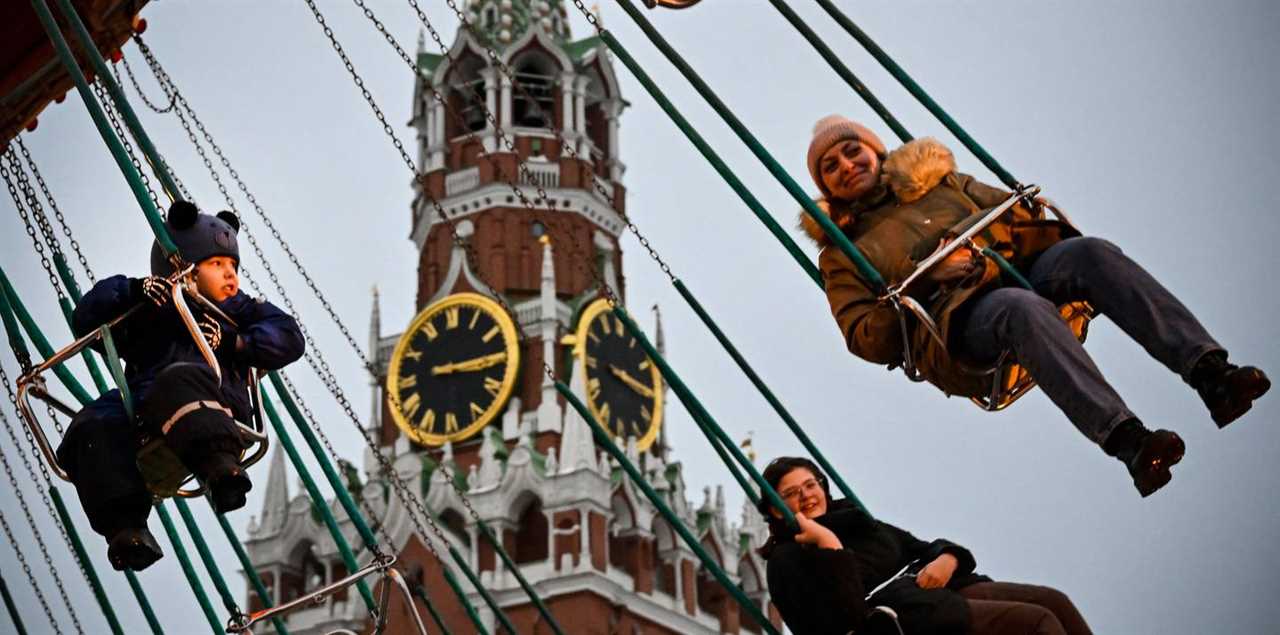
One friend likened the experience of living in Moscow to the classic 1978 remake of Invasion of the Body Snatchers, where fear and paranoia grip the human protagonists as they struggled to work out which of their friends have been replaced by monsters. It could be the mother hauled in for a parents’ evening at her daughter’s dance school, where teachers put on a conspiracy-laden video warning of western plots to destroy Russia. It could be the Skabeyeva viewers in the family of a senior Russian businessman who educates his children in Europe. “They say, ‘F**k everyone! Let’s nuke Holland! Let’s bomb London and Washington! Send the missiles!’ I say, What about your nephew, my son? Hey lives there! And they say, ‘Let them live in their own country.’”
The anti-war Russians who have not left the country have opted for a Soviet tactic, “internal emigration”, whereby the kitchen table has once again become the only arena for civic discourse. “There’s no way to organize anything,” my friend Sergei*, a biologist, says of protests he attended. “Even all the third-rate opposition leaders have fled or been jailed or been killed.”
While they wait for their European visas and Israeli passports to come through, my friends are finding new ways to cope. One finds solace in days-long meditation retreats. Others have turned to various forms of casual debauchery – drugs, alcohol, sex. After the protests failed, these were the only transgressive acts they felt they had left to them. “I just felt like I had to do something bad,” says Anya*, an artist.
The bestseller tables in Moscow’s bookshops have an Aesopian flavour: a collection of Tolstoy’s pacifist writings, life in Germany during the rise of Nazism, and philosophical musings about intellectuals’ culpability in war. Books by writers labeled “foreign agents”, a black mark equating them with spies, are now sold wrapped in brown paper. Many Russian-language pop crooners have been blacklisted for criticizing the war or for being Ukrainian. Plays directed by anti-war theater directors still run but with their names excised from the credits.
Shreds of the Moscow I once knew live on in the new centers of Russian exile: the anti-war journalists grumbling in Riga’s dive bars; the techies in Tbilisi, shy when locals mistake them for Ukrainians; the rappers raising funds for Ukrainian refugees in Istanbul.
A chasm is growing between them and their peers back in Russia as their realities diverge. To the Muscovites, those who are left passing off their desire for a better life abroad as a form of anti-war activism. To the exiles, those who stay are silently complicit in Putin’s war by not posting about it on social media and going to restaurants as if nothing had happened – making Moscow a place where indifference to the death and misery that Russia’s army is wreaking in Ukraine has been normalized, and where the champagne still flows.
“I’m against the war, but…” is the refrain I must commonly hear. “People are biological creatures and have to adapt,” a sanctioned oligarch says. Another laments: “The sanctions against me are like the yellow star the Nazis had for the Jews.” The heavily documented atrocities in Bucha, a town near Kyiv where Russian occupying forces allegedly raped, tortured and murdered hundreds of civilians, “are fake”, one senior state banker argues, without evidence. “It was all staged. Just look at the camera angles.”
Recently, the Kremlin has tried to bring the war home to an increasingly anxious population. But even that virulent rhetoric is fading into the background noise as it merges with Russia’s facade of normality. New year state TV specials featured an on-air toast to victory from Russian soldiers and a singer in bleached dreadlocks whose biggest hit has lines like “I’m Russian, my blood is from my father […] I’m Russian, to spite the world.”
Shortly before midnight, the channels cut away to Putin, standing in front of a group of Russian soldiers, as he went on a bleak 10-minute tirade about “traitors”, “western lies”, “neo-Nazis”, plots to “ split Russia apart”, and the conquest of Russia’s “historical territories”. Out on the streets, riot police blocked off Red Square and randomly beat up passersby – even though there have been no protests against the war for several months.
Then the channels cut back to their usual new year programming.
– Copyright The Financial Times Limited 2023
* Some names have been changed
Did you miss our previous article...
https://yogameditationdaily.com/meditation-retreats/where-to-find-meditation-classes-in-hong-kong-2022

